HS-LS1-3
Plan and conduct an investigation to provide evidence that feedback mechanisms maintain homeostasis.
-
 Genetics
GeneticsHow fake sugar can lead to overeating
Scientists have found that fruit flies and mice eat more after consuming food laced with a popular fake sugar.
By Dinsa Sachan -
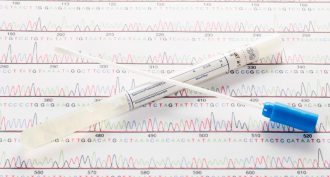 Genetics
GeneticsScientists Say: DNA sequencing
All of us have our own individual DNA. Now, scientists can determine what each individual strand is made of — a process called DNA sequencing.
-
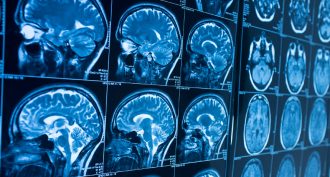 Brain
BrainHormone affects how teens’ brains control emotions
Using scans of brain activity, scientists show that surging hormones drive where emotions get processed in a teen’s brain.
-
 Animals
AnimalsThis mammal has the world’s slowest metabolism
A sloth species manages to exist with a super-slow metabolism by moving little and using its environment for heating and cooling its body.
-
 Health & Medicine
Health & MedicineAdult diseases may be linked to childhood weight
Danish scientists find that very overweight kids grow up with a heightened risk of colon cancer and stroke.
By Dinsa Sachan -
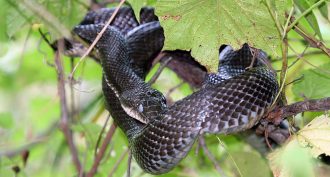 Animals
AnimalsSnakes go dark to soak in the sun
Snakes are paler in the South and darker in the North. The darker species absorb heat more quickly, a teen showed.
-
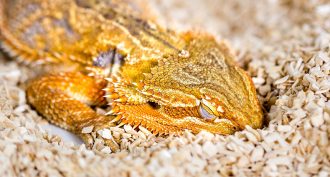 Brain
BrainDragons sleep like mammals and birds
Lizards seem to alternate between two sleep states, just as mammals and birds do. This finding could change our understanding of how sleep evolved.
-
 Brain
BrainLeft brain stands guard during sleepovers
Part of the left half of the brain remains on alert while the rest of the brain and body snooze.
-
 Chemistry
ChemistryGotcha! New test stalks diseases early
Chemists screen blood for disease markers by adapting a common DNA test. The test can find disease earlier, when it also may be easier to treat.
-
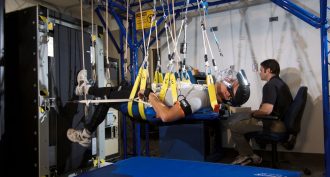 Health & Medicine
Health & MedicineCool Jobs: Researchers on the run
Researchers are taking running to extremes, from Olympic lizards to treadmills in space. The goal is to learn how athletes of all kinds can stay healthier.
-
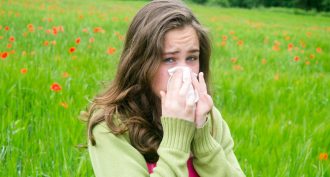 Health & Medicine
Health & MedicineAllergies linked to obesity and heart risks
Children and teens with asthma, allergies or other autoimmune conditions tend to be overweight and show symptoms of heart-disease risks, a new study finds.
By Tara Haelle -
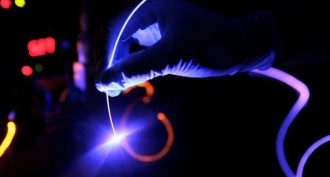 Tech
TechNew light on brain science
A combination of physics, biology and engineering lets scientists use light to trigger actions by specific brain cells. Called optogenetics, this technology is shining new light on how the brain works.